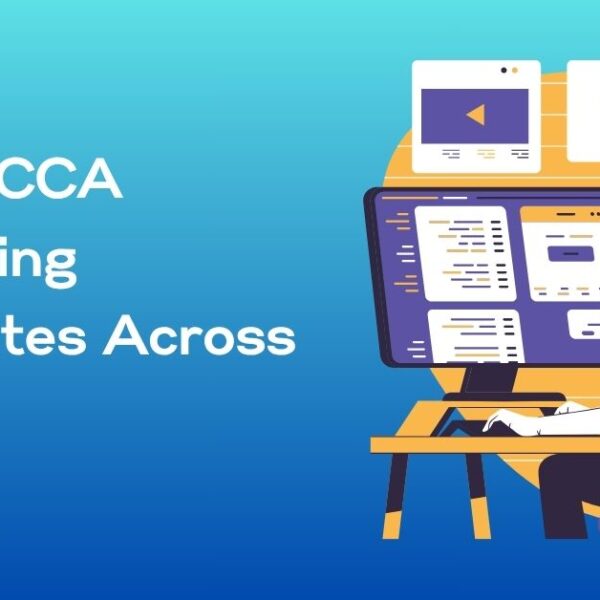How Zimbabwean Students Can Overcome Internet and Power Constraints
The global shift toward digital education has transformed professional qualification pathways, with remote learning offering unprecedented accessibility and flexibility. For ACCA students in Zimbabwe, however, this transformation brings distinctive challenges alongside its opportunities. Infrastructure limitations, particularly intermittent power supply and unreliable internet connectivity, present obstacles that require strategic navigation. This article examines practical strategies for overcoming these constraints, allowing for effective ACCA studies despite infrastructure challenges.
Understanding Zimbabwe’s Infrastructure Landscape
An accurate assessment of the current situation informs effective solutions:
Power Supply Realities
Zimbabwe’s electricity infrastructure presents several challenges:
- Load shedding schedules affecting predictable availability
- Regional variations in supply reliability
- Urban-rural disparities in service consistency
- Seasonal fluctuations based on hydroelectric capacity
- Peak demand period constraints
Most areas experience regular outages, ranging from several hours to extended periods, which significantly impact continuous online learning.
Internet Connectivity Situation
Digital infrastructure shows similar variability:
- Mobile data costs are among the highest in Africa
- Bandwidth limitations affecting video streaming
- Urban centres with relatively stable broadband
- Rural areas with limited connectivity options
- Network congestion during peak usage periods
These constraints particularly affect bandwidth-intensive learning activities, such as webinars, video tutorials, and synchronous virtual classrooms.
Technical Solutions for Infrastructure Challenges
Several practical approaches address these limitations:
Power Continuity Strategies
Ensure learning continuity through:
Backup Power Systems
- Solar charging solutions with battery storage
- Power banks for device charging
- Fuel-powered generators for critical periods
- Uninterruptible power supply (UPS) systems
- Shared backup arrangements with neighbours or the community
Energy-Efficient Learning Setups
- Low-power consumption devices (tablets, laptops)
- Screen brightness optimisation
- Unnecessary application closure
- Battery preservation settings
- Offline mode utilisation
Strategic Power Usage Planning
- Schedule alignment with expected supply windows
- Critical learning activity prioritisation
- Power-intensive task batching
- Alternative venue identification for essential periods
- Load shedding schedule monitoring and adaptation
These approaches transform unpredictable power into a manageable variable rather than an insurmountable barrier.
Connectivity Optimisation Approaches
Maximise limited internet resources through:
Data-Efficient Learning Techniques
- Text-based resource prioritisation over video
- Lower resolution selection for essential videos
- Audio-only options when visual elements are less critical
- Compression software for large downloads
- Browser data-saving extensions
Alternative Access Points
- Public library internet facilities
- Community centre digital access
- Educational institutions open access periods
- Workplace after-hours utilisation (where permitted)
- Commercial internet café strategic usage
Connectivity Planning Tools
- Internet availability mapping across locations
- Speed testing to identify optimal connection periods
- Download scheduling during off-peak hours
- Background synchronisation disabling
- Automatic update postponement
These techniques stretch limited connectivity resources further while prioritising educational essentials.
Learning Methodology Adaptations
Beyond technical solutions, adapt learning approaches:
Asynchronous Learning Optimisation
Leverage flexibility through:
- Downloaded content utilisation during offline periods
- Self-paced study schedule development
- Progress tracking independent of connectivity
- Offline assignment preparation with later submission
- Intermittent synchronisation strategy
This approach decouples learning progress from continuous connectivity.
Mobile-First Learning Strategies
Capitalise on smartphone prevalence:
- Mobile-optimised content prioritisation
- Microlearning during brief connectivity windows
- Offline mobile app utilisation
- Voice note recording for later transcription
- SMS-based learning support services
Mobile approaches leverage devices with better power autonomy and connectivity flexibility.
Physical Resource Integration
Combine digital and traditional materials:
- Strategic printing of critical digital resources
- Physical textbook investment for core subjects
- Handwritten note-taking during power constraints
- Paper-based practice question completion
- Reference material, physical collections
This hybrid approach maintains progress during digital access limitations.
Study Planning: Accommodating Constraints
Strategic planning mitigates infrastructure impact:
Constraint-Aware Scheduling
Develop realistic timetables considering:
- Typical load shedding patterns in your area
- Peak vs. off-peak connectivity quality
- Alternative location availability windows
- Device battery life limitations
- Seasonal variation patterns
This proactive planning prevents frustration and maximises productive periods.
Buffer Integration
Build resilience through:
- Extra time allocation for connectivity-dependent activities
- Deadline safety margins for submission requirements
- Alternative activity plans for unexpected outages
- Progress acceleration during optimal periods
- Contingency resources for critical learning phases
These buffers transform potential crises into manageable challenges.
Location Diversification
Expand study environment options:
- Multiple venue identification with different infrastructure patterns
- Rotation schedule development across locations
- Alternative site preparation with the necessary resources
- Transportation and access planning
- Security and safety considerations for all locations
This diversification prevents dependency on single-point infrastructure failures.
Collaborative Approaches to Resource Constraints
Community solutions often exceed individual capabilities:
Study Group Resource Pooling
Combine resources through:
- Shared backup power investment
- Internet bundle pooling for cost reduction
- Rotation hosting in homes with varying infrastructure
- Downloaded content exchange systems
- Technical expertise sharing among members
Collective approaches create economies of scale while building supportive communities.
Institutional Partnership Development
Engage with supportive organisations:
- Educational institution access negotiation during critical periods
- Employer facility utilisation arrangements
- Community centre partnership development
- Religious organisation facility sharing
- Commercial entity sponsorship exploration
These partnerships provide access to infrastructure that is beyond the means of individual investors.
Peer Support Networks
Establish mutual assistance systems:
- WhatsApp alert groups for power restoration notifications
- Shared calendar systems for venue availability
- Collaborative note-taking during connectivity windows
- Resource download responsibility division
- Knowledge sharing across constraint solutions
These networks multiply individual capacity through cooperation.
ACCA-Specific Learning Adaptations
Tailor approaches to qualification requirements:
Examination-Focused Prioritisation
During severe constraints, focus on:
- Past examination question practice (downloadable)
- Core concept mastery over supplementary content
- Examiner report analysis for insight (low data usage)
- Syllabus area weighting-based resource allocation
- High-yield topic identification and prioritisation
This focused approach ensures constraints don’t undermine examination readiness.
Strategic Content Selection
Not all materials require equal connectivity:
- Text-based technical articles over video explanations
- Concise study notes rather than lengthy lectures
- Downloadable practice kits for offline work
- Key definition and formula compilations
- Summarised concept guides over comprehensive resources
These selections maintain progress with minimal connectivity requirements.
Progress Tracking Systems
Maintain momentum through:
- Offline-capable study trackers
- Physical progress journals and planners
- Visual syllabus mapping with completion monitoring
- Regular self-assessment documentation
- Milestone celebration regardless of connectivity
These systems sustain motivation despite infrastructure challenges.
Psychological Resilience Development
Infrastructure challenges create mental and emotional strains:
Frustration Management Techniques
Develop coping strategies including:
- Perspective maintenance on long-term qualification benefits
- Constraint reframing as capability development
- Brief mindfulness practices during interruptions
- Productive pivot planning for unexpected outages
- Progress celebration regardless of infrastructure challenges
These approaches prevent demotivation during difficult periods.
Adaptability Cultivation
Build flexibility through:
- Quick transition capacity between online and offline modes
- Multiple learning approach familiarity
- Comfort with various study environments
- Capability to adjust plans with minimal notice
- Resilience when facing unexpected limitations
This adaptability transforms potential obstacles into navigable challenges.
Community Support Utilisation
Maintain motivation through:
- Regular contact with fellow students facing similar challenges
- Experience and solution sharing in supportive environments
- Celebration of collective progress despite constraints
- Mutual encouragement during particularly difficult periods
- Shared problem-solving for novel obstacles
This community dimension provides both practical and emotional support.
Institutional Support from ACCA and Learning Providers
External support enhances individual strategies:
ACCA Resource Adaptations
The association offers several constraint-conscious options:
- Offline access to essential materials
- Low-bandwidth versions of key resources
- Extended access windows for online assessments
- Mobile-optimised learning platforms
- Text-based alternatives to video content
These accommodations recognise diverse global infrastructure realities.
Tuition Provider Considerations
When selecting education partners, evaluate:
- Offline access capabilities for course materials
- Resource download options for intermittent study
- Alternative assessment submission pathways
- Flexible attendance policies recognising constraints
- Support staff’s understanding of infrastructure challenges
Providers like Hamzah Academy specifically design programmes acknowledging Zimbabwean infrastructure realities.
Examination Centre Contingency Planning
Prepare for assessment periods through:
- Early arrival allows for transport contingencies
- Backup documentation in case of online verification issues
- Alternative centre identification in case of localised issues
- Communication plan development for emergencies
- Examination day power backup arrangements (where permitted)
These preparations prevent infrastructure issues from disrupting critical assessment opportunities.
Future-Oriented Infrastructure Solutions
Beyond immediate adaptations, consider longer-term investments:
Personal Infrastructure Development
Where resources permit, consider:
- Solar system investment with educational return calculation
- Neighbourhood internet sharing arrangements
- Long-life device selection for future purchases
- Strategic relocation consideration for serious students
- Connectivity provider diversification
These investments provide increasing returns throughout the qualification journey.
Advocacy for Systemic Improvement
The collective voice can influence change:
- Educational access prioritisation in infrastructure planning
- Professional body advocacy for member needs
- Community-based infrastructure improvement initiatives
- Awareness raising about the educational impact of constraints
- Institutional partnership development for solution creation
While individual capacity for system change is limited, collective advocacy can influence resource allocation priorities.
Conclusion
For Zimbabwean ACCA students, infrastructure challenges represent real but surmountable obstacles on the qualification journey. Through strategic technical solutions, adapted learning methodologies, collaborative approaches, and psychological resilience, these constraints become manageable variables rather than insurmountable barriers. The problem-solving capabilities developed through navigating these challenges often translate into valuable professional competencies that extend beyond qualifications.
Hamzah Academy recognises the unique infrastructure landscape facing Zimbabwean students and has specifically designed our online ACCA education to accommodate these realities. From low-bandwidth learning options to offline-capable materials, from flexible assessment approaches to infrastructure-conscious scheduling, our programmes enable effective learning despite connectivity and power constraints.
Remember that thousands of Zimbabwean professionals have completed the ACCA qualification despite these challenges. Your adaptation strategies not only support academic progress but also develop resilience, resourcefulness, and problem-solving capabilities that distinguish truly exceptional accounting professionals. The constraints you navigate today contribute to the distinctive capabilities you bring to tomorrow’s professional challenges.








